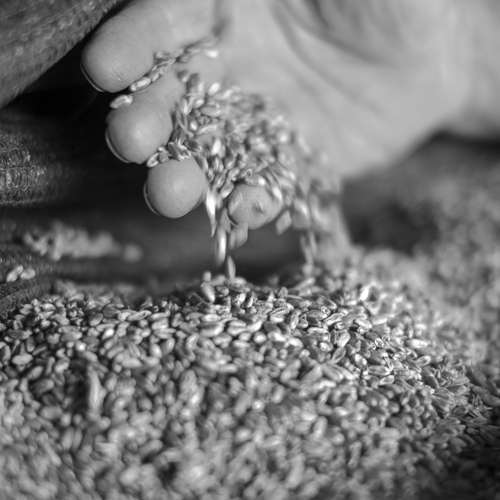
Near the village of La Torba and in parallel with the Marina of Capalbio, there is the farm and guesthouse of Mauro Pellegrini and his family.
This farm represents a small part of the large farm, which was owned by a family from Maremma until the 1950s when there was the Land Reform acts . Then, a part of the former property of 2000 hectares, which extended from the hills in the distance to the sea, was expropriated by the state and divided into lots amounting to 10-12 hectares with a house on each property. In addition, the land was drained because it was partly covered by marshes and roads were built, connecting them together. The lots were given to former sharecroppers, who were turned into farmers. In return, they had to pay a yearly rent to the state.
Some of them succeeded in tending the land, growing produce, which they were able to sell on open markets, while others sold their properties, leaving agriculture behind. Instead, the family of Mauro bought parts of the surrounding land, extending the area of the farm.
The farm of Mauro is maintaining a long trail of tradition with about 1000 olive trees, growing both fruits and vegetables and raising some cows. Moreover, he has started growing a vegetable, which is specially adapted to this land: the golden onion, which Mauro grows and sells at local markets with ease.
Mauro Pellegrini had already harvested and started sorting the golden onions by size upon our arrival. The largest onions are highly sought after at local markets, supermarkets and the food industry, but the smaller ones are also popular among the locals. The seeds of the onions are bought from big seed companies, ensuring a high quality of the onions and controlling the prices.
The name of this farm, Monte Alzato, is derived from a hill with the same name, clearly visible towards the north upon entering the farm. Instead, the sea is a few hundred metres westwards, easily within reach by bike on straight roads.
The gentle hills covered by Mediterranean maquis constitute a natural barrier against winds from the north-east, while the lowlands, as seen from above, look like a chessboard of vineyards, olive groves, orchards, fields and so on.
Going back a couple of millennia, the Aurelia highway passing the Monte Alzato farm, was called Via Aurelia by the Romans. Even at that time, this land was used to cultivate vineyards, olive trees, cereals, vegetables and fruit trees. In fact, the Romans called this area the Valley of gold. The Romans, being good engineers, and the Etruscans preceding them. reclaimed this land from swamps and wetlands, but after the fall of the Roman empire, the land returned to wetlands until the 1950s.
There are also sources of groundwater in this area, which are used to irrigate the fields.
In addition to the golden onions, durum wheat is grown at this farm and Mauro sells the harvest to the pasta manufacturer Ghigi. Fortunately, the farmers are allowed to keep a part of the harvest as seeds for the next season and durum wheat is highly appreciated by the consumers. Besides, he cultivates barley and clover, which fixes nitrogen. This is very useful since clover is used as fodder for the cattle, while nitrogen acts a fertiliser for the plants. The hay is sold to factories, turning it into haybales, which are used as a substrate for growing mushrooms.
As regards the olive trees, the olives are collected quite early in order to avoid that the olives are destroyed by the olive fruit fly, which is a grave problem. After 15 July about 100 olive samples are collected and sent to a lab for analysis. If there is a limited amount of eggs from the olive fruit fly inside the olives, they are treated with insecticides, but if more than 20% of the olives are attacked, the whole harvest is destroyed. In the former case, the damage done by the fruit flies may be limited, the olives can be harvested and sent to an olive oil press.
Mauro also offered us a ride across the Aurelia highway to some grassy fields near the sea where Maremmana cattle was grazing inside enclosures. This land has been acquired by a society called Sagra, which let the animals roam freely inside enclosures.
In addition to running a farm, Mauro and his family also has a guesthouse, which is very popular among tourists because it’s ideally placed near the sea and the countryside is full of farms where local wines and olive oils are being produced.
